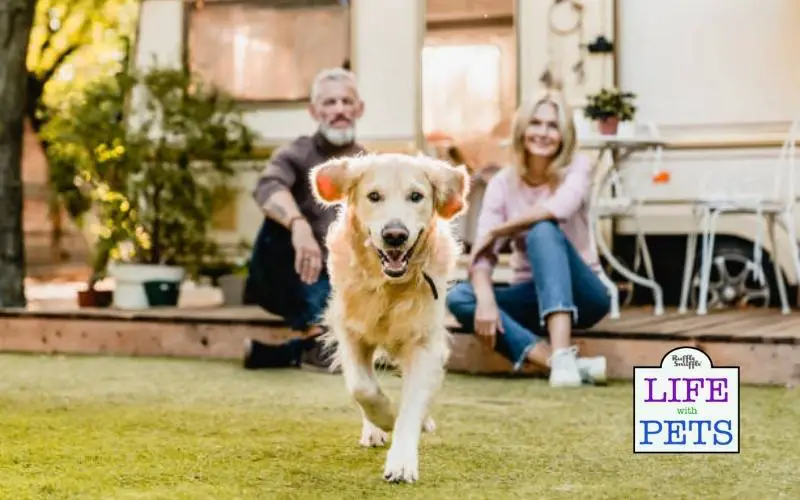What happens to pets when you and your partner separate?
There’s no confusion as to why we, as humans, love the companionship of a four-legged furry friend. Dogs are loyal, providing their owner with unconditional love and affection – and in many cases, are a precursor or substitute for children. They also promote exercise, requiring it themselves and needing their human companion to accompany them, and in other cases, people choose to own a dog for home security purposes. Whatever your reason, a dog makes the perfect addition to many families.
Therefore it’s perhaps not surprising that when a couple decides to separate or divorce, their dog becomes a more contentious issue. As the phrase goes, ‘a dog is for life’ with most people expecting to own their pet until the end but for couples that decide to go their separate ways, this isn’t always the case.
Dogs vs children in a court of law
During a divorce, children are treated as legal parties when determining custody; the court will always act with the child’s best interests in mind, taking into account their age, along with any physical or mental needs, emotional ties and relationships with family members, and the capacity of the parents to provide a safe and stable environment. This does not, however, translate to pets of any kind.
It doesn’t matter whether you dress your dog up, whether it eats at the table, or sleeps in a human bed, the dog will always be considered an object. This means the dog has no choice about who owns it, so in the eyes of the law, it is dealt with pretty similarly to a co-owned car, a piece of furniture or a prized record collection.
As dogs are simply considered in law to be an object, their ownership is usually decided by standard property laws. Which partner is deemed to have sole ownership is often dependent on how the dog originally joined the family.
Deciding who gets the dog
In the event of a domestic separation, all property should be shared fairly between both parties. This is most commonly achieved through a 50/50 split of all assets and debts. Whilst the aforementioned treasured record collection can be equally divided, immediately – 50 LPs each – how can a pet be split?
The short answer is: it can’t.
In some instances, it can be relatively easy for the courts to decide ownership. If one partner brought the dog into the relationship, having owned it prior to the marriage, then sole ownership is likely to reside with them, whether the other partner agrees or not. Comparably, if the dog was bought as a gift from one partner to the other, the recipient of the gift may gain sole ownership, despite the other party having made the initial purchase.
For families with children, there are other factors that may be applied which could lead to a different outcome. If the children have a strong emotional attachment to the dog (which, let’s be honest, most do!) then the parent with main custody for the children may also be awarded the dog, as this is deemed to be in the best interest of the children. The court may view the dog as an important source of emotional support and stability for the children who will, of course, be heavily impacted due to the divorce.
Where a couple owns more than one dog, the same rules apply about who gets custody of which pet unless it can be proved that the dogs have some sort of interdependency such as one being a guide dog to another blind animal.
“But I love them more…!”
Some divorces are very simple to process, with both parties agreeing on terms, such as the custody of a pet, way before solicitors are involved. Where negotiations are more fraught, legal professionals will try to help a couple try to resolve their difference via mediation before a case reaches court.
It is possible for both parties to be given time to express any hopes, wishes or concerns they may have in respect of the family pet. However, when it comes to legally delegating the ownership of a dog, the courts are unlikely to take into account which partner loves the dog more or which owner the dog loves more, because affection and familiarity are not grounds for obtaining ownership.

The power of a pre-nup
A pre-nup (pre-nuptial agreement) is an agreement that is made and signed prior to marriage, setting out which partner will take ownership of which assets in the event of a divorce.
As long as the pre-nup meets certain criteria (such as the arrangement not being signed under duress or coercion), it will be taken into consideration and usually be a determining factor in the decision-making process.
Can you compromise?
Many divorced parents maintain joint custody of their children, co-parenting by the child taking turns to live with each parent for an agreed amount of time.
This tactic is rising in popularity for dog owners too, so although a dog can’t be split in two, the time it spends with both ‘parents’ can. The beauty of this arrangement is that the exact details can be altered to fit in with custody of children, new living arrangements and working patterns.
There are a surprising number of Google searches on this topic, so although it’s easy to be flippant about these matters, this can be a really heartbreaking matter for couples going through a divorce.
Whilst it’s difficult for owners to keep emotions out of divorce proceedings, that’s exactly what solicitors will do. As much as possible they’ll determine who has the legal rights to the family pet, purely based on ‘Max’ or ‘Bella’ being an object in the eyes of the law.
This is a guest post by: John Roberts is a Partner and Director of Austin Lafferty. John has been with the firm for almost 20 years, with experience in all areas of family law, including divorce and separation, adoption and contact.

- READ NEXT:
- The Rise Of Pet-Nups: Who Gets The Dog (Cat, Tortoise, Parrot…) If You Separate or Divorce?
- 5 Meaningful Ways to Include Your Pet In Your Wedding Celebration

